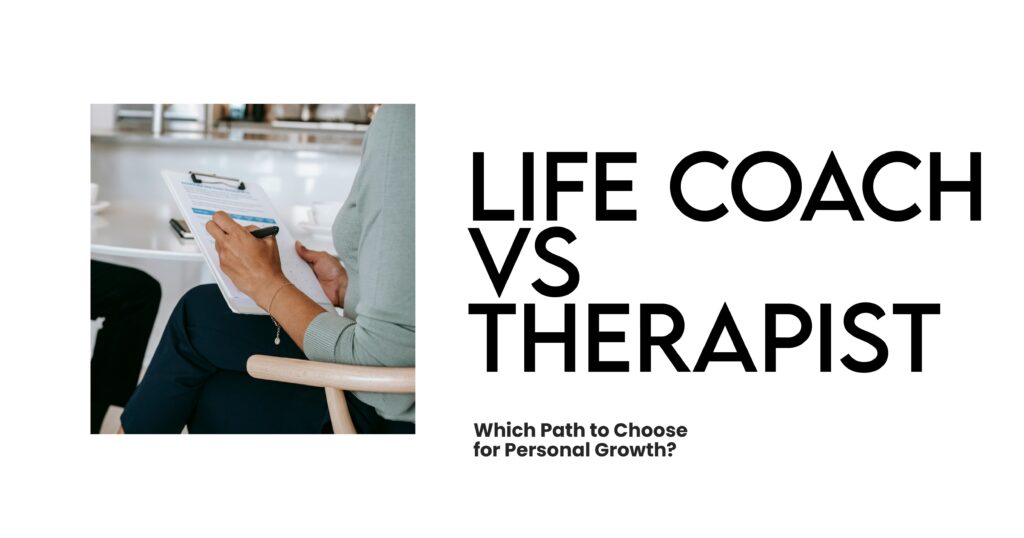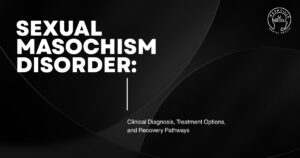What should you go for? Life Coach vs Therapist. Both are important on your journey to growth. These professionals will undoubtedly improve your quality of life. But their roles and approaches are different. Which means different results, too.
To make your choice easier. This blog will expand on both professions. Their benefits, ethical considerations, and more.
Differences Between a Life Coach and a Therapist
What are the differences between a life coach and a therapist? A coach helps you come up with a plan. Actionable enough to reach your goals. This could be getting promoted at work. Leading a healthy lifestyle or having fulfilling relationships. A therapist walks alongside you in your journey through mental health treatment, also, with emotional struggles, such as PTSD and addiction.
Nashville Mental Health
Definition and Role of a Life Coach & Therapist
| Aspect | Life Coach | Therapist |
| Definition | A coach partners with you to set goals and helps you achieve them. | A licensed mental health professional who works to address psychological concerns. |
| Role | Focuses on motivation, strategy, and accountability. | Provides diagnosis, therapy, and healing for mental health concerns. |
| Approach | Focused on goal-setting. | Engages in a therapeutic, deeper approach that often includes a focus on past experiences. |
| Qualifications | Certification varies; no universal license required. | Requires advanced degrees and state licensure. |
How Each Professional Supports Personal Growth
Life coaches and therapists both play a part in personal and emotional growth, though in very different ways. Knowing the differences can help, but sometimes it is not just about differences; it is about what you feel drawn to.
Life Coach: Supporting Growth
A life coach will help you set goals, hold yourself accountable, and give you a nudge when you stall. They are usually very forward-focused, career – and relationships-driven, or even just about how to live with more purpose.

Therapist: Supporting Growth
Therapists create something different. A space that can hold the weight of emotions. In therapy, you might discover patterns you did not notice. Or work through things from the past. The ones that still show up in the present. This isn’t always easy.
Sometimes it feels slow. But little by little, it brings coping skills and emotional healing. And of course, it comes with the guidance of a professional who is trained in mental health, which can feel safer if what you are carrying is heavy.
Tools and Techniques for Emotional Healing and Development
Life coaches and therapists each offer different forms of tools, objects, methods, and approaches to help support you in your growth and healing.
| Professional | Tool/Technique | Description |
| Life Coach | Goal Setting | Defines clear, achievable goals to guide your personal development. |
| Life Coach | Accountability Checks | Regular check-ins to keep you committed to your plans. |
| Life Coach | Motivational Techniques | Uses encouragement and positive reinforcement to boost motivation. |
| Therapist | Cognitive Behavioral Therapy (CBT) | Helps change negative thought patterns. |
| Therapist | Talk Therapy | A space to openly discuss your thoughts. |
| Therapist | Mindfulness and Relaxation | Reduces stress and increases self-awareness. |
| Therapist | Emotional Regulation Strategies | Managing difficult emotions effectively. |
| Therapist | Trauma Therapy | Healing past trauma. |
| Therapist | Psychoeducation | Provides knowledge about mental health. |
Ethical Considerations and Boundaries
Life coaches and therapists follow ethical principles. They are there mostly to protect you. To make sure the relationship feels safe and respectful. Without that kind of trust, no progress will really happen. Some of these principles overlap between coaching and therapy; others are handled differently.
- Confidentiality: Both coaches and therapists keep your information private. That said, therapists carry stricter legal obligations. There are laws that bind them. This way, protection feels a bit different depending on which path you choose.
- Scope of Practice: A life coach will not diagnose or treat mental illness. That is simply not their field. Therapists, however, are trained for clinical conditions and can step into that role when needed.
- Informed Consent: Before starting, professionals explain how they work. Their methods, the limits of what they can do. What you can reasonably expect. It is meant to set the stage. Not all surprises are bad, but when it comes to this kind of work, fewer surprises are better.
- Dual Relationships: Coaches and therapists avoid personal relationships with their clients. Mixing the two can blur lines and create harm, sometimes in subtle ways.
- Competence: It is impossible for anyone to know everything. Professionals work within the limits of their training and experience. At times, they will direct you to a different professional if your needs go beyond what they themselves can address.
- Boundaries: There are limits on the lengths of sessions, frequency of meetings, and type of relationship that takes place outside of the parameters of the professional relationship. Boundaries are in place to help both parties. Although boundaries might feel like constraints, if there are no boundaries, the relationship will likely break down.
- Conflicts of Interest: Professionals take care to avoid situations where their objectivity might be compromised. Or where they might profit inappropriately from the relationship. Trust, once broken, becomes extremely difficult to mend. And so it is a point one cannot shy away from expressing strongly.

All of these standards. Whether in coaching or therapy, they exist for the same reason. They protect your dignity and your safety. Which in turn makes growth possible. Without that foundation, progress can crumble.
Maintaining Professional Standards in Coaching and Therapy
For both a life coach and therapist to work effectively with you, it is imperative they hold a high standard of professionalism.
Life Coaches Maintain Standards
Life coaches usually follow clear standards so it is not just someone giving advice. For instance, the International Coaching Federation requires specific training hours, hundreds of logged sessions, and regular recertification. It is a bit of a process, but that is the point. The structure makes sure coaching is grounded in proven methods rather than personal guesswork.
Nashville Mental Health
Therapists Maintain Standards
Therapists carry a different kind of responsibility. Licensing laws, continuing education, and ethical boards. It is all there to keep the work safe. A clinical psychologist, for example, cannot practice without a degree, supervised hours, exams, etc. And once licensed, they have to keep studying to stay licensed and current.
Choosing the Right Support for Your Needs
If your focus is on goals, like building motivation, making concrete changes, and finding direction, then a life coach can be a helpful partner. Their work leans toward action and structure.
But if what you are carrying feels heavier, emotional pain or trauma, or ongoing mental health struggles, a therapist is the safer path. They bring professional training and treatment that a coach simply cannot provide.
Factors to Consider When Deciding Between a Life Coach and a Therapist at Nashville Mental Health
When exploring the options of working with a life coach versus a therapist, it is up to you and your goals and interests. Here are some things to consider.
- Mental Health Issues: Therapists at Nashville Mental Health offer licensed, evidence-based treatment for more complicated issues involving anxiety, depression, trauma, etc.
- Goal-focused: Life coaches can support clients around motivation, setting goals, and personal development, but they do not provide mental health treatment.
- Professional Care: Nashville Mental Health has a team of highly qualified professionals who each have their own individualized therapy program in therapeutic practices, including cognitive-behavioral therapy (CBT), dialectic behavior therapy (DBT), and holistic treatment options.
- Level of Care: Therapy is essential if you’re seeking clinical and/or mental health assistance, but coaching is for people who are working on personal growth or other life shifts.
If you’re still not sure, it’s a good decision to reach out to Nashville Mental Health and have a conversation about your needs with a mental health professional who can help you figure it all out.
FAQs
What are the key differences between life coaching benefits and therapy benefits?
Life coaching benefits include motivation, goal planning, and getting to a future place of achievement. Therapy, in contrast, emphasizes emotional recovery, as well as processing past experiences in life and healing more profoundly.
How do differences between a life coach and a therapist impact mental health support?
Therapists diagnose and treat mental health disorders and are able to provide clinical care. Life coaches cannot provide clinical care. They facilitate personal growth and mental health support.
In what ways can personal development coaching help alongside emotional healing therapy?
Coaching involves setting and achieving goals to foster confidence and motivation for action. Therapy helps facilitate emotional healing and the development of skills for coping with distress.
What should you consider when choosing between counseling vs coaching for your needs?
If you are dealing with emotional distress, then therapy or counseling would be best. If you have challenges with motivation or need help in exploring life, then a coach or a motivational coach could be a better fit.
Nashville Mental Health
How does motivational coaching complement traditional therapeutic approaches for personal growth?
Coaching and therapy differ in that coaching works more towards emotional awareness. While the therapy process is about emotional healing, both can be a very powerful partnership in your longer-term growth.












